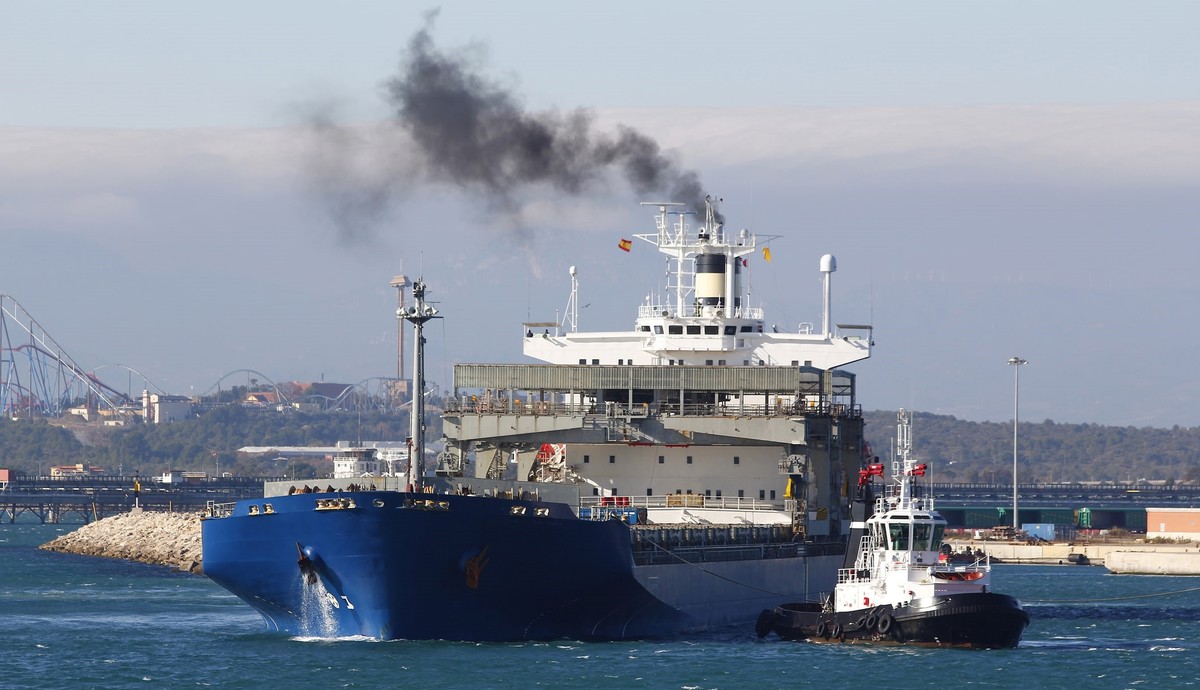Parties responsible for a ship's EU ETS and FuelEU Maritime compliance may differ - DNV
Shipowners and operators should update commercial contracts to include terms of coverage for FuelEU Maritime, the classification society DNV recommended in a recent webinar.
 PHOTO: Getty Images
PHOTO: Getty Images
The EU's FuelEU Maritime (FUEM) regulation will come into effect in just over 150 days.
It sets out targets for a 2% reduction in the greenhouse gas (GHG) intensity of the energy used onboard vessels from 2025, 6% from 2030, 14.5% from 2035, 31% from 2040, 62% from 2045 and 80% from 2050, compared to 2020 levels. Ships with higher GHG intensity than the required level must pay a penalty corresponding to their compliance deficit. This compliance deficit is the difference between the required and actual GHG intensity of a vessel and is calculated in terms of energy based on the ship's actual GHG intensity.
The penalty can be applied at a rate of €2,400/mt ($2,600/mt) of VLSFO-equivalent energy used onboard the ship, or approximately €58.50/gigajoule ($9.19/gigajoule) for the use of non-compliant energy.
Despite the short timeline for the implementation of the FUEM regulation, DNV pointed out that there is still confusion surrounding the roles and responsibilities associated with the FUEM regulation, as was the case with the EU Emissions Trading System (EU ETS) regulation.
“As opposed to EU ETS, the responsible company under FuelEU Maritime must be the ISM company and cannot be retained by the registered owner unless the owner is also the ISM company,” DNV stated. “This implies that the responsible company for a ship may not be the same for EU ETS and FuelEU Maritime,” it added.
Technical ship managers that comply with the IMO’s International Safety Management (ISM) code—also known as ISM companies—are legally responsible for adhering to the FuelEU Maritime (FUEM) regulation, DNV said.
The IMO’s ISM code provides a global standard for the safe management and operation of ships.
However, ISM companies cannot decide which fuel to use on the vessel and cannot delegate this responsibility to other parties. As a solution, DNV suggests that technical managers aim to secure updated ship management contracts before 1 January 2025.
FUEM currently does not provide guidance for commercial contracts between owners and charterers, but charterers should be prepared to increase the use of compliant fuels on vessels, DNV advised. Individual companies are expected to develop their own terms for contracts.
Going forward, DNV anticipates that term charter agreements will include specific clauses to meet the requirements of the FUEM regulation. These clauses can outline what needs to be done to comply with FUEM and include provisions for additional financial settlements between ship owners and charterers. They can also specify that compliant fuel must be used throughout the duration of the agreement.
Finally, the agreements can set rules for compensation in cases where there is either a surplus or a deficit in compliance. This will ensure that both parties are financially accountable for meeting FUEM regulations, DNV stated.
For voyage charter contracts and affreightment contracts, DNV expects FUEM costs to be included in charter rates and tariffs, respectively.
By Konica Bhatt
Please get in touch with comments or additional info to news@engine.online





